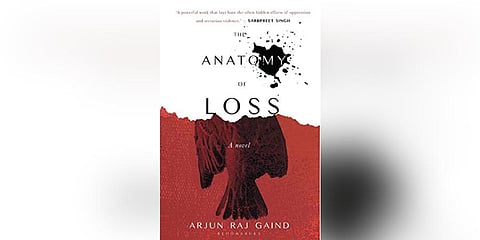

Arjun Raj Gaind’s 'The Anatomy of Loss' is set amid the political unrest in the aftermath of Operation Bluestar in 1984, and the series of tragic events that followed.
The military action, authorised by then prime minister Indira Gandhi, was aimed at clearing the militants who had taken up residence in Amritsar’s famed Golden Temple, but it also left thousands dead. Matters came to a head when Gandhi was assassinated by two of her own Sikh bodyguards five months later, resulting in national fury, ensuing in anti-Sikh riots and genocidal violence against the community.
Gaind’s novel, however, does not focus on the nitty-gritty of the political happenings of the time. Rather, his is a deeply personal narrative, which intimately examines the long-lasting emotional ramifications of the tragedy.
The life of the protagonist Himmat Singh, who was a child of eight at the time of Indira’s death, continues to be haunted by his past. He was in the middle of an idyllic vacation with his maternal grandparents when the shocking news reached them. The ramifications of the event on his life are swift, shocking and
long-lasting.
As the anti-Sikh riots break out, Himmat’s poet and professor grandfather, Gobind, shaves off his beard to disguise his identity. The act reveals the patriarch as a frail and scared man, contrary to the vaunted hero that the little boy has looked up to. That very night, Gobind’s best friend seeks his help to save his son, who is only a few years older than Himmat and has been taken into police custody, but Gobind refuses.
Anxious to protect Himmat, Gobind decides to leave Amritsar with his family. Despite the boy’s repeated pleas, he refuses to intervene even as great injustices play out before his eyes, weakening the bond between the grandfather and grandson.
Himmat is a finely etched character, whose psyche is laid bare and exposed, as he struggles to come to terms with his identity and desperately seeks a sense of belonging. The functionings of his mind are made available to the minute scrutiny of the reader to a disconcerting effect. The constantly festering agony of one who has been unceremoniously exposed to the ugliest side of human nature is, in no small part, due to the crimes of the past, when the Sikhs were repeatedly persecuted under the Mughal and British rule, and in Independent India.
Through his protagonist, the author draws attention to the suppurating wounds left on the collective psyche of the Sikh community. It also shows how the embers of anger and despair are constantly stoked by self-serving politicians, which not only perpetuates the cycle of hate, but also leaves no room for healing.
Gaind also does a fine job of reconstructing personal trauma. He writes with heartbreaking candour, making the book an unputdownable read. Even as Himmat moves to London as an adult, he fails to leave the memories of the tragedy behind. No amount of self-destructive behaviour heavy drinking, chiromania, getting recruited by a radical outfit––brings him closer to finding the strength to forgive and fully become the man with the heart of a lion, he was always impossibly close to being.
By: Arjun Raj Gaind
Publisher: Bloomsbury
Pages: 272
Price: Rs 599